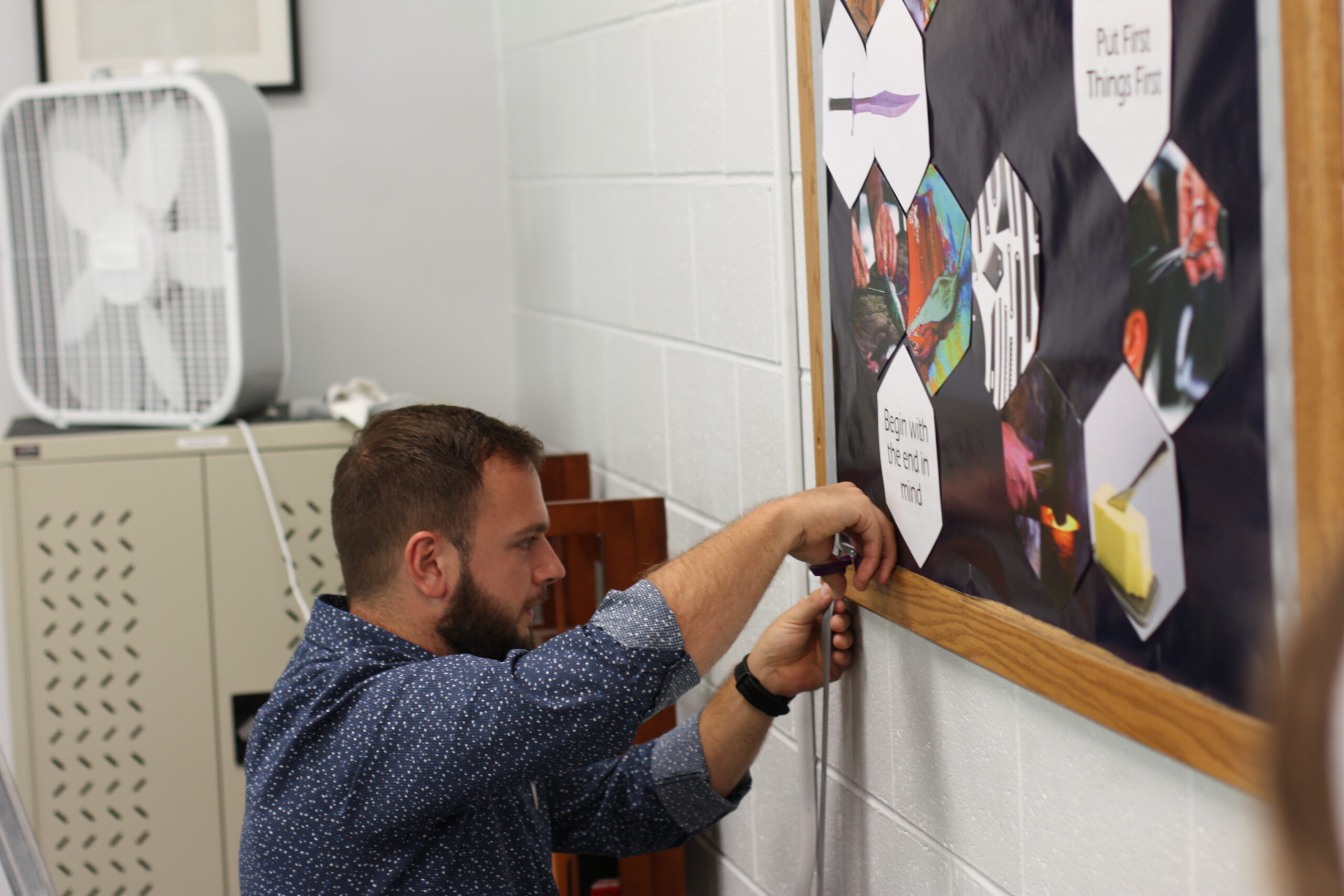Making Teaching Sustainable Long-Term
★★★★

“How do you keep teaching year after year without burning out?” Occasionally I hear this question from friends and colleagues. My reply varies somewhat depending on the listener. To be honest, I have often asked myself the same thing, and I am far from having all the answers. Yet I have recognized some life principles that have sustained me through sixteen years of teaching, and I am still learning to put these things into practice well. Beyond the obvious factors of maintaining my relationship with God and doing what I can to stay healthy, here are some things I have learned:
Learn to say no to good things. Christian school teaching is a high and holy calling, and it deserves our loyalty and energy. You may have struggled, as I have, with attempting to find your identity and self-worth in your involvements and accomplishments. It can be difficult to learn to say no to ten things so that you can do one or two things well. Teaching school long-term means that you will need to turn down other good opportunities. Recognize and embrace the value of deep commitment to a community. Deep-rootedness produces beauty and strength. Teaching school provides us with an opportunity to invest deeply in the shaping of our churches and communities, and this is a beautiful thing. Recognizing and appreciating this provides a sense of purpose that can help us through the difficult times. I have enjoyed the privilege of having some of my former students become my fellow staff members. On Sunday morning I smile as I see former students teach Sunday school, lead singing, or have devotions. Currently I teach the children of many of my former schoolmates. While the restlessness of mainstream culture can lead us to believe that fulfillment comes from trying new things, jumping from one community to the next, always looking for the next exciting opportunity, nothing can replace the value of deep roots and commitment. Teach out of who you are, not out of what you think others expect of you. It is far too easy to fall into the trap of trying to live up to everyone’s expectations. These expectations can be real or only perceived, but becoming obsessed with them swiftly leads to burn-out. While you will always need to follow basic expectations of your school and community, you must shape your classroom around your own interests, talents, and teaching style. Don’t think you have to do everything that other teachers do or that previous teachers in your classroom did. I think of a classic example of this in the school where I teach. Many years ago, a teacher got her fourth graders involved in a chick-hatching project. She had grown up taking care of animals, and this was her interest and passion. She taught for a few years, and students always looked forward to this project. Teachers who followed her didn’t want to disappoint the students, so they continued the project whether they liked it or not. It became a tremendous burden for some, until one teacher finally had the good sense to discontinue the tradition. This freed her to incorporate other things that capitalized on her own talents and experiences. Invest in your own continuing education. This may involve taking a few college courses while teaching or even taking a few years off to pursue more education. While that may be out of reach for some of us, many simple tools are available to anyone. Read books. Travel if you can, especially to places with historic or educational value. Do things that stretch you. While I was with a group of other adults, learning a skill that was difficult for me, I found that I could suddenly empathize better with students who struggle in my classroom. As we teach, we must be continual learners. Simplify your lifestyle. This can mean different things for different people. Something that is an enjoyable hobby for one person can be an energy-draining burden for someone else. For instance, having an extensive wardrobe and putting together a unique outfit every day may be something that gives you joy and energy. I, on the other hand, have found that a fairly simple wardrobe works best for me and that my decision-making powers are best saved for other endeavors. What can you eliminate from your daily routine without compromising something that you value? Make time for things you enjoy that have nothing to do with school. This can be tough, especially in the first year or two of teaching. School responsibilities can feel all-consuming. This can also perhaps seem to go against the previous point. But I believe it is vital to have interests and hobbies outside of school and to avoid having teaching become our identity.Teaching long-term without burning out is possible. The stability of years of experience in the classroom is something that our schools and communities desperately need. Will you do what it takes to offer this to your community?
Leave a Reply